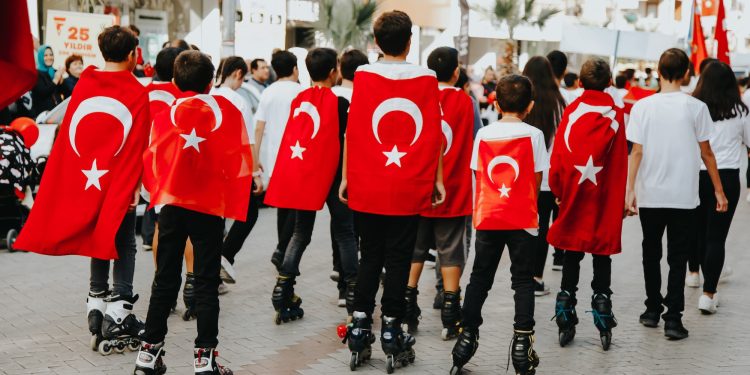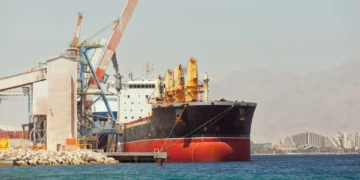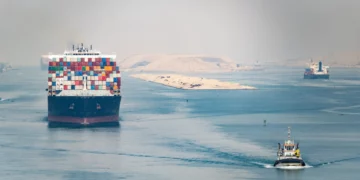These will be the first elections in Turkey since the ones in 2018 that saw the country transition to a presidential system from a parliamentary one following an attempted coup in 2016 by the armed forces.
Turkish President Recep Tayyip Erdogan and his Justice and Development Party (AKP) are facing the toughest challenge to their 20-plus-year rule on May 14, as the country goes to simultaneous presidential and parliamentary elections. These will be the first elections in Turkey since the ones in 2018 that saw the country transition to a presidential system from a parliamentary one following an attempted coup in 2016 by the armed forces.
Six different opposition parties have joined hands to oppose Erdogan, with Kemal Kilicdaroglu of the Republican People’s Party (CHP) as the united opposition’s candidate, citing as their main poll issues the weakening of democracy in the country, political violence during the campaign, imprisonment of journalists en masse, the handling of the devastating February earthquake, an economic crisis, and the handling of the Russia-Ukraine War.
Opinion polls show this to be the closest fight for the country’s top job since Erdogan first came to power in 2003. More than 64 million people are expected to head to the booths, and election results will be announced on 19 May. However, in case of a close contest, the election could head into a second round, in which case elections will be announced on June 1.
This article will serve as a quick guide to the principal electoral issues, the main ideological divide, and potential ramifications on international affairs.
Inflation and Earthquake are the two biggest election issues
Some of the major concerns of Turkish voters going into this election are the collapsing economy and the handling of the massive earthquake that struck Southern Turkey (and Syria) in February.
Turkey has been facing soaring inflation rates for a long while now, with an especially wild swing in October, seeing inflation cross 85%. The primary cause is widely considered to be President Erdogan’s loose monetary policy, as well as a continuous refusal to allow an independent and autonomous central bank governor.
The inflation crisis has profoundly affected the Turkish economy, with imports being near-unaffordable and many millions of people struggling to make ends meet. Even though certain export sectors, such as tourism, have benefited greatly, most voters agree that the currency crisis is the thing weighing most heavily on their minds. However, while still high, the inflation rate has eased up somewhat in recent weeks, slowing to 44%. It remains to be seen whether this is low enough to alleviate concerns from voters.
Another major issue in this election has been the massive 7.8 scale earthquake that struck Southern Turkey on 6 February and killed more than 60,000 people, leaving more than 1.5 million homeless. This earthquake was the second strongest ever to hit the country and has had repercussions on Turkey’s housing, healthcare, education, sports, and military situation.
The earthquake has led to severe criticism of the Erdogan government for allegedly attempting to cover up the severity of the earthquake, shoddy building codes and zoning laws that heightened building collapses, discrimination against minorities in the distribution of aid, a slow disaster response, as well as an internet block in affected areas. All these factors have stoked significant anger against Erdogan.
Another issue, though slightly less important than the previous two, is the 3.6 million Syrian refugees in the country, who have put significant stress on the country’s already buckling system.
The election will also have a huge international impact.
Another important issue is the clash between ideologies signified by this election. Erdogan espouses a nationalist-Islamist ideological agenda that has garnered significant support in the Eastern Anatolian heartland. His policies have sometimes been described as neo-Ottomanism, an attempt to reinstall Islam as the state ideology of Turkey and carve out a Turkish sphere of influence in the surrounding Balkan and Middle Eastern regions, thus bringing Turkey back to the greatness of the Ottoman Empire.
Opposing him on the other side are the Kemalists, the secular-nationalist branch of Turkish politics, which support the policies of national founder Mustafa Kemal Ataturk by keeping the state secular, espousing Turkish ethnonationalism, and promoting military rule. The Kemalists are strong in the financial and cultural capital of Istanbul and the Western coast and pursue a more hands-off foreign policy while cracking down hard on ethnic minorities and religious fundamentalists.
One thing is certain, regardless of which way the elections go, the results will have a significant impact on the surrounding region and the wider world beyond. Turkey is a heavyweight in the region, being the second-strongest military in NATO, and the most dynamic economy in the entire Middle East, controlling the Bosphorus straits and acting as a cultural beacon for the entire Islamic world.
Issues like the Russia-Ukraine War, where Turkish drones have played a crucial role, the Israel-Palestine conflict, and the Syrian Civil War will be heavily affected by the results too, not to mention Swedish dreams of NATO membership, grain exports from Ukraine, and the global energy market.

















